Did you know that making smarter choices in home heating could cut your household energy bills by up to 40%? As energy prices continue to surge and environmental concerns rise, embracing eco-conscious home heating isn’t just an ethical decision — it’s a practical move for every family. In this comprehensive guide, you’ll uncover how modern green heat technologies not only keep your home cozy but also save money and shrink your carbon footprint. Get ready to explore the facts behind sustainable heating and actionable steps to transform your home for the better.
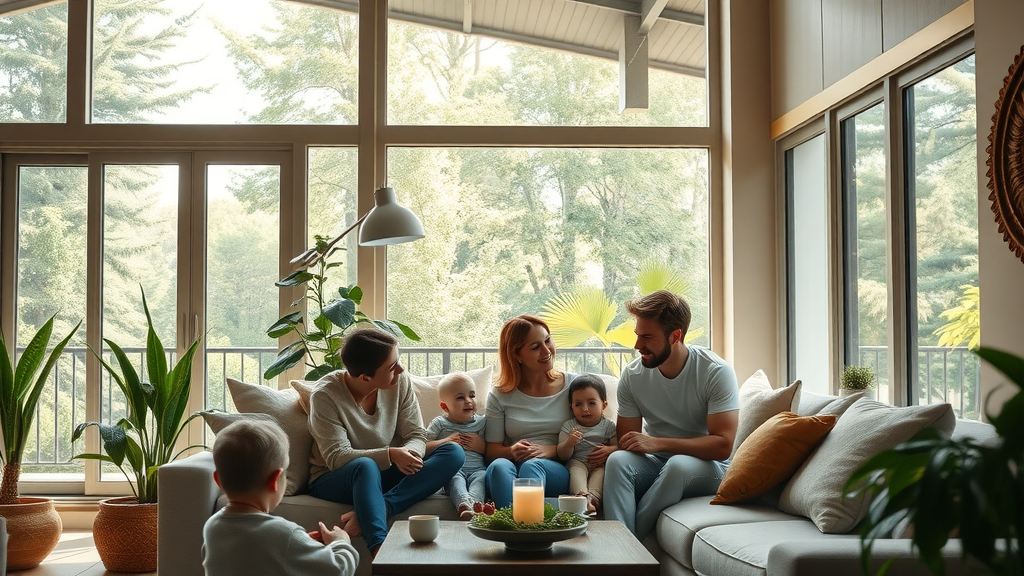
Did You Know? Eco-Conscious Home Heating Could Slash Your Bills by 40%
Household heating and cooling can account for nearly half of your annual energy bills, and traditional heating options relying on natural gas, oil, or electricity from fossil fuel plants are notorious for their inefficiency and high costs. By switching to eco-conscious home heating systems—like heat pumps, pellet stoves, or solar-based solutions—you could reduce both your energy bills and carbon footprint dramatically.
Eco-conscious options often harness renewable energy sources, and when combined with smart thermostats and quality insulation, they minimize heat loss and unnecessary energy use. These sustainable heating systems not only make financial sense over time but also contribute to increased comfort and healthier indoor air quality. Let’s take a closer look at what eco-conscious heating means and how it impacts your daily life.
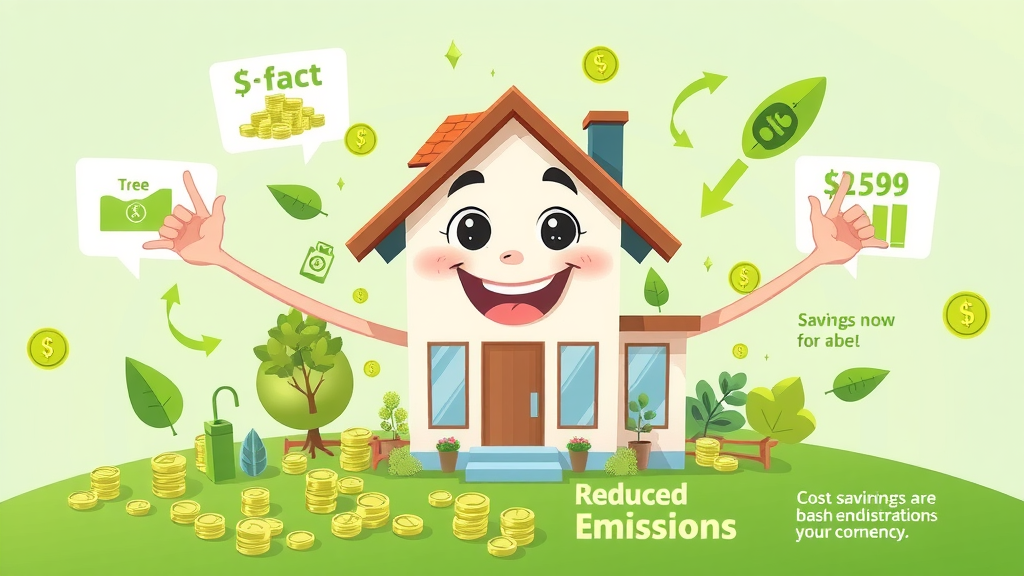
Understanding Eco-Conscious Home Heating and Its Impact on Households
Eco-conscious home heating refers to using systems and approaches that prioritize energy efficiency, sustainable heating sources, and minimal environmental impact. Unlike conventional heating systems that burn fossil fuels, these options—such as heat pumps or solar heating—use clean energy or optimize heat distribution throughout your home. This not only reduces harmful emissions but also helps maintain lower running costs across all seasons.
Households utilizing green heating technology experience less heat loss, require fewer repairs, and often notice more consistent indoor comfort. Furthermore, by reducing reliance on fossil fuels, each home can play a part in combating global warming and improving outdoor air quality. The environmental impact of swapping to eco-conscious solutions can be substantial, cutting down your home's carbon dioxide emissions and easing the load on overloaded energy grids.
Why Eco-Conscious Home Heating Matters for Your Comfort and the Environment
Investing in sustainable heating isn’t just about saving money—it's a step toward a healthier, more comfortable living environment. Eco-conscious home heating systems are engineered to deliver warmth with less waste, distributing air or water efficiently throughout your living spaces. By adopting green heating, you help lower greenhouse gas emissions and reduce your household’s reliance on non-renewable energy sources.
A major advantage of these systems is improved air quality. Unlike some traditional heating systems that can emit combustion by-products inside your home, green heating solutions such as heat pumps and solar panels deliver cleaner, healthier air. This decrease in indoor pollutants leads to fewer respiratory issues and a generally more inviting living atmosphere.
Significant reduction in monthly energy bills
Lower emissions contributing to a smaller carbon footprint
Quieter and more consistent home heating
Long-term savings through higher efficiency
Eligibility for government incentives or rebates in many regions
"Heating accounts for nearly 50% of the average home's energy use—switching to sustainable heating could be your biggest energy savings yet." – Energy Saving Trust
What You Will Gain by Mastering Eco-Conscious Home Heating
Becoming skilled at using eco-conscious home heating is about more than cutting costs; it’s about future-proofing your home against rising energy prices and environmental legislation. With the right knowledge, you can make informed choices that benefit both your wallet and the planet. You’ll learn to compare various green heating options, master practical energy-saving tricks, and maximize the efficiency of sustainable heating technologies in your own space.
• Practical tricks to cut household bills
• Comparative knowledge of green heating systems
• Hands-on tips for maximizing sustainable heating efficiency
Eco-Conscious Home Heating Versus Traditional Home Heating Systems
How does eco-conscious home heating outperform traditional systems? Let’s compare their efficiency, costs, environmental impacts, and comfort levels to highlight why switching means a win for both homeowners and the climate.
Feature |
Eco-Conscious Home Heating |
Traditional HVAC Systems |
|---|---|---|
Energy Efficiency |
Up to 400% efficient (heat pumps), minimal heat loss |
60–80% efficient, frequent heat loss |
Cost (Operation) |
Low long-term costs, higher upfront investment |
Cheaper upfront, higher running costs |
Environmental Impact |
Uses renewables, low carbon footprint |
High carbon dioxide emissions, relies on fossil fuels |
Comfort |
Steady, even heating; better air quality |
Temperature fluctuations, indoor pollutants possible |
A Deep Dive Into Eco-Conscious Home Heating Options
The world of sustainable heating offers several innovative systems tailored to different home types and climates. Among the most popular eco-conscious home heating options are heat pumps—both air source and ground source models—modern pellet stoves, efficient gas condensing boilers, and solar heating systems that harness energy straight from the sun. These alternatives are designed to maximize efficiency, minimize your reliance on fossil fuels, and adapt to a variety of installation requirements.
Heat pumps
Pellet stoves
Modern gas condensing boilers
Solar heating systems
Each sustainable heating solution brings its own benefits. Pellet stoves, for example, burn renewable biomass, while solar heating systems significantly reduce operational emissions by utilizing an inexhaustible energy source. Understanding the nuances of each heating option helps you select the configuration best suited for your home and lifestyle needs.
How Heat Pumps Revolutionize Eco-Conscious Home Heating
Heat pumps have emerged as a game-changing technology in the field of green heating. By transferring heat from the outside air or the ground into your home, rather than generating heat through combustion, they offer unmatched efficiency. In many climates, a modern heat pump can provide all your heating and cooling needs year-round while using a fraction of the energy consumed by conventional systems. This makes them one of the premier choices for anyone serious about eco-conscious home heating.
Explaining Heat Pumps: The Heart of an Eco-Friendly HVAC System
At its core, a heat pump is a device that moves heat from one place to another using refrigerant technology. In winter, it takes ambient heat from the air or ground and transfers it inside. In summer, the process reverses, cooling your home like an air conditioner. This versatility makes a heat pump central to modern HVAC systems focused on both heating and cooling performance.
Unlike conventional systems that rely on burning fossil fuels such as natural gas or oil, heat pumps run on electricity and can be paired with renewable sources like solar panels for even lower environmental impact. Ground source variants (often called geothermal systems) provide especially high efficiency, as they tap into relatively constant underground temperatures. This helps further reduce your carbon dioxide output and optimize overall home heating efficiency.
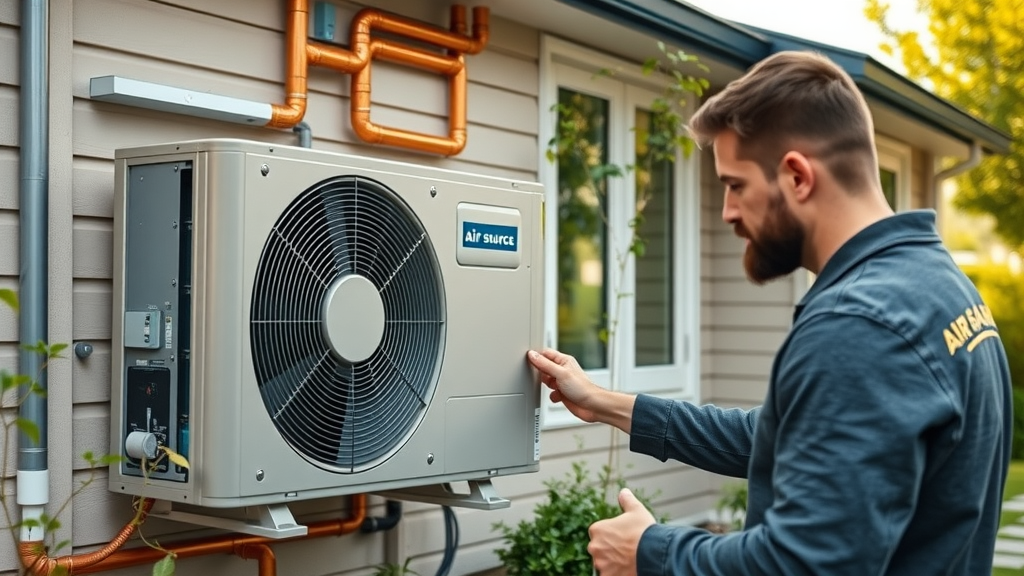
Benefits and Drawbacks: Air Source vs Ground Source Heat Pumps
Air source heat pumps are generally easier to install, less expensive up front, and suitable for many climates with moderate temperature swings. They extract heat from the air outside and can provide ample heating and even hot water for most homes. Ground source models, on the other hand, are more efficient because they leverage the stable temperature underground, but require more extensive installation and higher initial investment.
The main pros of air source heat pumps include lower cost and quicker retrofit into existing homes. Ground source heat pumps, while pricier, operate at consistently high efficiency and are rarely impacted by harsh winter temperatures. However, they need digging or drilling on your property, which may be a limiting factor. Whichever system you choose, both represent significant upgrades over conventional heating options in terms of efficiency, sustainability, and indoor comfort.
When evaluating which type of eco-conscious home heating installation is right for your property, consider factors like available space, climate, upfront vs. total lifetime costs, and any regional rebates or incentives for sustainable heating.
Is a Heat Pump the Right Heating Option for You?
Deciding whether a heat pump is your ideal green heating solution depends on several factors. Is your property well-insulated? Do you live in a moderate or cold climate? Air source units are effective for most UK and European homes, while ground source heat pumps provide the best results for new builds or large-scale renovations with space for ground loops. If you want to reduce energy use and are ready for a smart home upgrade, a heat pump may be perfect for you.
It’s crucial to consult with a certified HVAC system installer to properly size your system and ensure compatibility with your existing home heating and cooling setup. The right installation delivers reliable comfort, dramatic energy savings, and long-term resilience in a changing energy landscape.
Sustainable Heating Systems: Green Heat Beyond the Basics
Today’s sustainable heating options don’t stop at heat pumps. Innovative systems like pellet stoves, biomass boilers, and solar hot water panels offer a wealth of choices for eco-conscious homeowners. These technologies are designed to make use of renewable energy sources, whose cost and carbon impact are generally far lower than those of fossil fuels.
Pellet Stoves and Biomass Solutions for Eco-Conscious Home Heating
Pellet stoves have gained popularity as an eco-friendly home heating solution. Using compressed wood or other biomass pellets, these stoves offer controlled, efficient combustion with low emissions compared to traditional fireplaces or wood stoves. Modern designs can heat entire homes or supplement existing systems, often saving on energy bills and qualifying for green incentives.
The sustainability of pellet stoves comes from their fuel source—biomass is renewable and carbon-neutral when harvested responsibly. Most modern units feature automatic feeds and thermostatic controls, making them convenient as well as efficient. They’re also a great option for rural homes with access to local wood supplies or for those wishing to diversify their home’s energy sources.
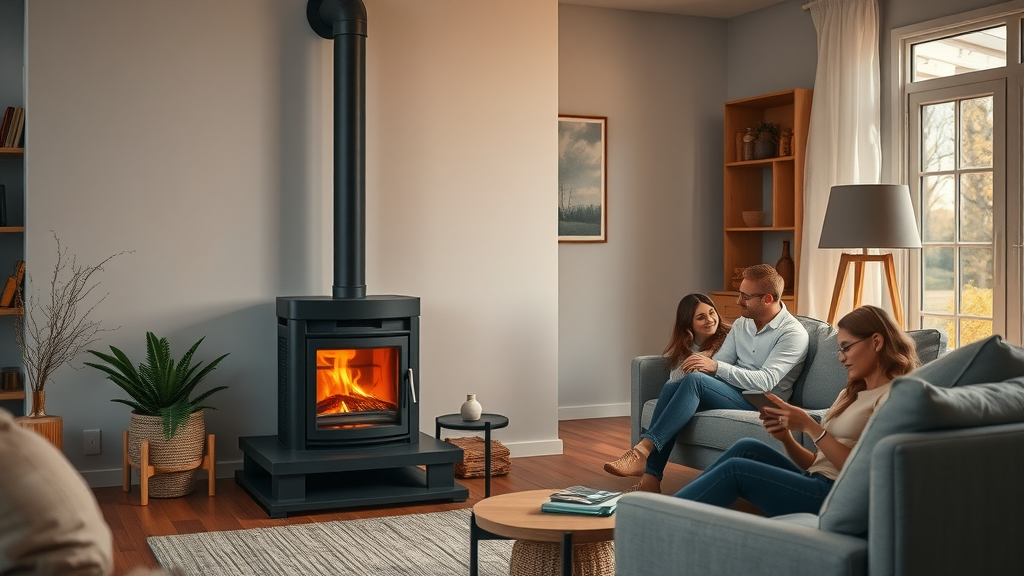
Solar Thermal: Harnessing the Sun for Sustainable Heating
Solar thermal systems use rooftop panels to collect the sun’s energy and transfer it into heat for your home’s water supply or central heating system. This technology dramatically reduces utility bills and your dependence on fossil fuel-based energy, especially when paired with well-insulated homes and existing eco-conscious heating technologies.
Installing solar thermal panels is often a cost-effective upgrade with long-term payback. These panels work even during cloudy days, providing hot water and supplementing other heating systems for maximum efficiency. When combined with a heat pump or pellet stove, you can enjoy higher year-round energy savings and an impressively low carbon footprint.
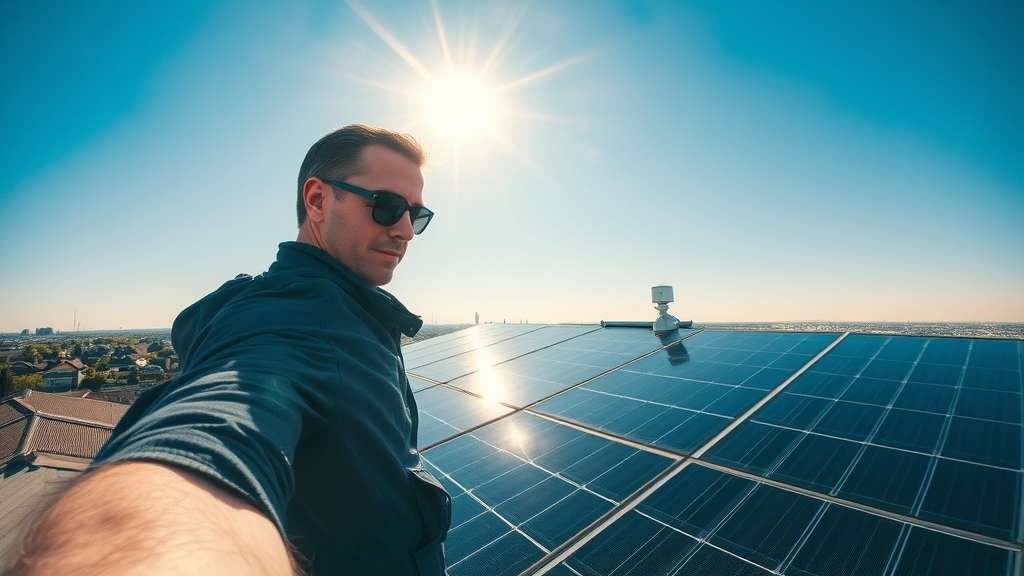
Upgrading Your Existing HVAC System to a Green Heating System
Retrofitting older homes to support eco-conscious home heating may sound daunting, but it’s increasingly achievable for homeowners everywhere. Whether you’re considering a new heat pump, enhancing a gas condensing boiler’s performance, or adding a pellet stove, today’s retrofit solutions adapt to most property types. The first step is consulting a professional, who can assess ductwork, insulation, heat loss, and compatibility with different sustainable heating options.
Retrofitting options for older homes
Importance of professional installation
Integrating smart thermostats for optimal control
Adding a smart thermostat to your system can also maximize your comfort while minimizing emissions. These devices learn your preferences, manage heating and cooling cycles, and even optimize operation based on weather forecasts, occupancy, and time of day. Proper upgrades mean less energy wasted, lower bills, and a faster return on your sustainability investment.
Smart Thermostats: Maximizing Efficiency in Eco-Conscious Home Heating
Smart thermostats are revolutionizing the way homeowners control their heating and cooling systems. By allowing remote operation via smartphone apps and incorporating machine learning, these devices help you only use energy when and where it’s needed. This means significant savings and improved performance from any green or traditional HVAC system.
In addition to daily scheduling, smart thermostats can identify inefficiencies, remind you of maintenance, and even work in tandem with solar panels or ground source heat pumps for optimal results. Investing in smart technology often pays off rapidly, as you take one more step toward a fully sustainable, comfortable, and eco-conscious home.
Comparing Heating Options: Cost, Efficiency, and Environmental Impact
When considering eco-conscious home heating solutions, it’s crucial to weigh upfront installation costs against long-term savings, emissions, and reliability. Here’s a comparison of leading options to help you decide.
Heating System |
Upfront Cost |
Operating Cost |
Efficiency |
Environmental Impact |
|---|---|---|---|---|
Air Source Heat Pump |
£4,000–£8,000 |
Low |
300–400% |
Low Carbon Footprint |
Ground Source Heat Pump |
£14,000–£24,000 |
Very Low |
400%+ |
Ultra Low Carbon Footprint |
Pellet Stove |
£2,000–£4,500 |
Moderate |
85–95% |
Renewable, Low Emission |
Solar Thermal System |
£3,000–£5,000 |
Minimal (free sun!) |
Up to 70% for water |
Zero Emissions |
Traditional Gas Boiler |
£1,500–£3,000 |
High |
60–90% |
High Carbon Dioxide Emissions |
How to Evaluate the Most Suitable Eco-Conscious Home Heating System for Your Space
Choosing the right sustainable heating solution requires a careful assessment of your property and priorities. Always start with a professional energy audit to analyze current heat loss, insulation quality, and your overall heating and cooling needs. Size your heating system to match your space’s square footage and local climate conditions—oversizing leads to waste, while undersizing leaves you cold.
Key home heating needs assessment
Sizing, insulation, and climate considerations
Balancing cost and environmental goals
Equally important is evaluating your budget for upfront investment versus ongoing savings and considering available rebates or incentives for switching to green heating. Seek out advice from experienced eco-conscious installers to make the most informed, effective investment for your future comfort and sustainability.
Green Heat Myths: Debunking Common Misconceptions About Eco-Conscious Home Heating
'Green heating is always expensive'
'Heat pumps don't work in cold climates'
'Pellet stoves are high maintenance'
Contrary to popular belief, upfront costs for green heating solutions are offset by rapid savings and available rebates. Modern heat pumps are highly effective even in sub-zero climates, and today’s pellet stoves are designed for low-maintenance convenience. System performance and ease of operation have advanced well beyond past generations, meaning it’s never been more practical—or affordable—to embrace sustainable heating systems.
"Sustainable heating technologies have advanced rapidly—what was true five years ago may be outdated today." – Renewable Energy Expert
Practical Steps: How to Make Your Current Home Heating System More Eco-Conscious
Schedule a home energy audit
Install a smart thermostat
Upgrade insulation and windows
Optimize heating system settings
Regularly maintain your green heating equipment
Each of these steps contributes to reduced energy bills, lower household emissions, and a more comfortable, efficient home. Small upgrades, like sealing drafts or upgrading to a programmable or smart thermostat, can deliver instant gains, while larger investments in insulation or hybrid heating systems bring sustained benefits year after year.
Video: How to Install a Heat Pump for Eco-Conscious Home Heating
Watch a trusted installer demonstrate the process of fitting a modern air source heat pump, breaking down every stage from site assessment and installation to system commissioning. Get practical insights on common challenges and see what it takes to upgrade your home heating to a high-efficiency, eco-conscious standard.
Video: Smart Thermostats in Action—Maximize Your Eco-Conscious Home Heating
See real-world examples of smart thermostats optimizing heating cycles, reducing waste, and boosting comfort. Learn how these advanced controls adapt to your family’s habits, outdoor temperatures, and peak energy periods to deliver sustainable savings every day.
Case Studies: Real-World Success Stories of Eco-Conscious Home Heating
Victorian home retrofitted with a ground source heat pump
Modern apartment using solar-assisted green heating
Suburban house with pellet stove integration
These examples showcase the versatility of eco-conscious home heating, from period properties to compact city flats. In each case, homeowners slashed energy bills, improved indoor air quality, and dramatically reduced their carbon dioxide emissions—all through sustainable heating solutions tailored to their spaces.
FAQs about Eco-Conscious Home Heating
What is the most eco friendly home heating system?
Ground source heat pumps and solar heating systems are typically the most eco-friendly, offering high efficiency, renewable energy use, and minimal emissions compared to traditional hvac system and heating options.
Does eco warm heater actually work?
Eco warm heaters, such as high-efficiency electric heaters or modern pellet stoves, deliver comfort and energy savings when used as recommended and combined with proper insulation and controls.
What is the healthiest home heating system?
Heat pumps, radiant floor heating, and proper ventilation in green heating systems promote healthy indoor air quality without the combustion by-products of traditional home heating systems.
What is the most eco friendly HVAC system?
The most eco-friendly HVAC system typically combines a high-efficiency air source or ground source heat pump with smart thermostat controls and uses renewable energy sources where possible.
Key Takeaways for Embracing Eco-Conscious Home Heating Approaches
Eco-conscious home heating saves money and energy
Modern heating systems greatly reduce carbon footprints
Green heating options have never been more accessible
Start transforming your home heating for a cleaner, greener future today.
For Personalized Advice on Eco-Conscious Home Heating
For expert help or advice from Ed Serrell Plumbing and Heating call 0796 688 4368 , or email info@edsplumbing.co.uk
Sources
Energy Saving Trust – https://energysavingtrust.org.uk/advice/air-source-heat-pumps/
Gov.uk – https://www.gov.uk/guidance/renewable-heat-incentive
To enhance your understanding of eco-conscious home heating, consider exploring the following resources:
“Eco-friendly Ways to Heat Your Home” : This guide delves into various sustainable heating methods, including biomass heating, geothermal systems, and solar heating, providing insights into their benefits and implementation. ( sustainablelivingguide.com.au )
“Sustainable Heating Solutions for Eco-Friendly Homes” : This article discusses innovative heating options such as geothermal heating and the importance of proper insulation, offering practical tips for creating an energy-efficient home. ( green.org )
These resources offer valuable information to help you make informed decisions about sustainable heating solutions, leading to energy savings and a reduced environmental impact.
 Add Row
Add Row  Add
Add 




Write A Comment